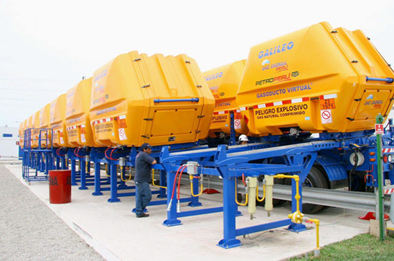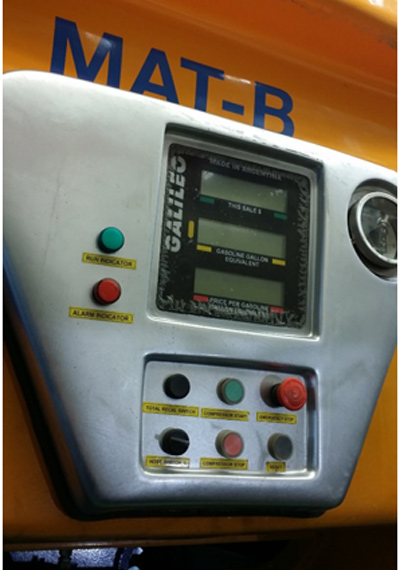Adapted from https://www.verdek.com/pipeline.htm
| For distances up to 250 miles, CNG Virtual Pipeline® is the best alternative to transport natural gas to remote locations where the gas lines are not available.
MAT Mat Dimensions: Length 127” Width 100’ Height 90”
MAT-B
MAT-B has an electronic management system which controls compression, filling operation of the platform and delivery system with real-time precision measurement and monitoring features which enables accurate fuel billing and reporting for your customers. MAT – B has an integrated dispenser to fill vehicles on the go. Transportation Systems
This truck carries one MAT-B and two MAT. The configuration offers 143,000 SCF at 3,600psi or 1,150 GGE.
Hydraulic ramps allow for an easy loading and unloading of the MATs
Applications INDUSTRIAL & POWER GENERATION CNG REMOTE FUELING STATIONS
|
|
|
|














